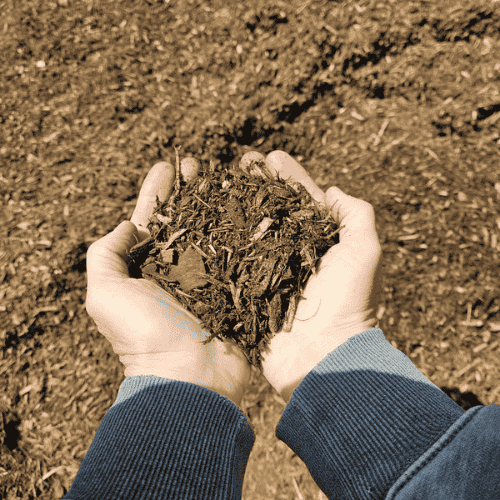
When you think of mulching a garden, your mind might go straight to sun-soaked flower beds and veggie patches. But mulch isn’t just for sunny spaces—it plays a critical role in shady gardens, too. In fact, choosing the right mulch for a shade garden can mean the difference between plants that thrive and ones that struggle.
At Kirk Allen Landscape Supply, we help New Jersey homeowners and landscapers make the best decisions for their outdoor spaces—including those trickier shaded areas. If you’re working on a yard surrounded by tall trees or buildings, keep reading. We’ll break down how mulch works in low-light environments, the best types of mulch to use, and how to apply it properly.
Why Shade Gardens Need Mulch Too
Shade gardens have unique challenges. While they enjoy some natural moisture retention due to less sun exposure, they also tend to suffer from:
- Poor soil drainage
- Competition with tree roots
- Slower decomposition of organic matter
- Higher risks of mold and mildew if overwatered
Mulch can help address these issues by:
- Suppressing weeds, which tend to grow slowly in shade but can still compete for nutrients
- Maintaining consistent moisture levels without encouraging soggy soil
- Protecting plant roots from temperature swings, even under tree cover
- Adding organic matter slowly, helping to improve long-term soil health
But not all mulch is created equal—especially in shady gardens.
What to Look for in Mulch for Shady Areas
Before you grab just any bag of mulch, consider the specific conditions of your garden. Here’s what matters most in a shaded setting:
1. Drainage & Aeration
Shady areas dry out slower. You want a mulch that allows air and water to pass through without suffocating your soil.
2. Slow Decomposition
In cooler, damp conditions, mulch tends to decompose more slowly. This means you don’t want something that breaks down too quickly or it could lead to mold.
3. Pest Resistance
Mulch placed near shady tree lines or structures may attract bugs. Choose options that won’t invite termites or other pests.
Top Mulch Options for Shade Gardens in NJ
Here are some of the best mulch types for shady spaces, tested and trusted by our team and customers:
1. Pine Bark Mulch
- Best for: Flower beds and ornamental shade plants
- Why it works: Pine bark has a coarse texture, allowing excellent drainage and air circulation. It doesn’t compact easily and lasts a long time.
2. Shredded Hardwood Mulch
- Best for: Heavily wooded or tree-lined gardens
- Why it works: A reliable, widely available choice. It breaks down slowly and adds nutrients to the soil over time. Its dark color also contrasts nicely with green shade plants.
3. Leaf Mulch (Leaf Mold)
- Best for: Natural or woodland gardens
- Why it works: If you’re going for a soft, natural look, leaf mulch is perfect. It’s nutrient-rich and mirrors the conditions of a forest floor—ideal for hostas, ferns, and shade-loving perennials.
4. Cedar or Cypress Mulch
- Best for: Shade gardens with pest concerns
- Why it works: These types of mulch contain natural oils that repel insects. They also smell great and last a long time.
Mulch Types to Avoid in Shade Gardens
Not every mulch is suitable for the cool, damp conditions found in the shade. Be cautious with:
- Straw mulch – It retains too much moisture and can become moldy.
- Grass clippings – They compact easily and tend to rot in the shade.
- Rubber mulch – It offers no organic benefit and can overheat certain root systems.
Tips for Applying Mulch in Shade
Even the best mulch won’t do its job unless it’s applied correctly. Here are a few simple rules:
- Use 2 to 3 inches of mulch – Too little won’t help; too much can smother roots.
- Keep mulch away from plant stems and tree trunks – This prevents rot and discourages pests.
- Replenish annually – Shady mulch breaks down slowly, but an annual top-off helps maintain appearance and function.
- Loosen compacted mulch – Over time, mulch can form a crust. Rake it gently to improve airflow.
Ideal Plants for Shaded, Mulched Gardens
Pair your mulch choice with shade-loving plants that benefit from consistent moisture and protection. Here are a few NJ favorites:
- Hostas
- Astilbes
- Ferns
- Bleeding hearts
- Heuchera (Coral Bells)
- Japanese forest grass
Mulch not only helps these plants stay healthy, but also enhances their visual appeal by providing contrast and keeping the garden tidy.
Buying Mulch in Bulk vs. Bags
For larger shade gardens or professional projects, bulk mulch makes more sense than bags. At Kirk Allen Landscape Supply, we offer affordable mulch delivery throughout New Jersey, including custom mixes perfect for low-light landscapes.
Benefits of buying mulch in bulk:
- Lower cost per cubic yard
- Less plastic waste
- More consistent texture
- Convenient delivery right to your jobsite
Need help figuring out how much mulch to order? Call us at 973-347-3117 and we’ll walk you through it.
Final Thoughts: Mulching for Shade Doesn’t Have to Be Complicated
Choosing the right mulch for your shade garden isn’t about guesswork—it’s about understanding the needs of your space and selecting a material that supports healthy, long-lasting plant growth. With the right mulch in place, your shady spots can become lush, vibrant corners of your yard that look great all season long.
If you’re planning a project in northern or central NJ, Kirk Allen Landscape Supply has everything you need. From mulch and decorative stone to bulk soil and sand, we’re your trusted local partner in making outdoor spaces beautiful.
📞 Call us today at 973-347-3117 or visit our website to learn more and schedule a bulk delivery.

